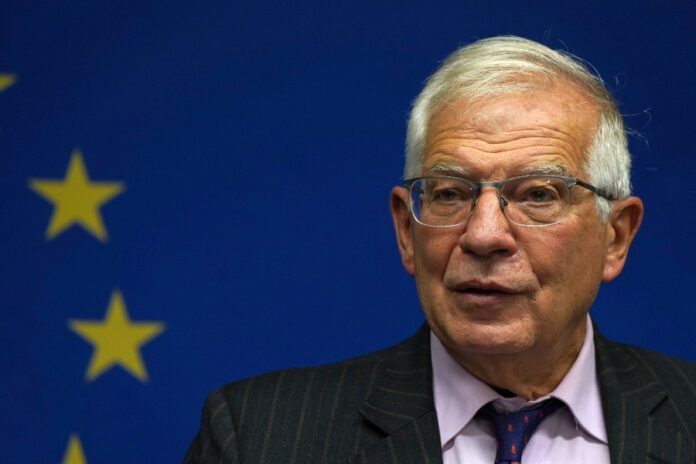European Union foreign policy chief Josep Borrell blamed Kosovo on Thursday for a failure to implement a deal with Serbia on normalizing relations between the two former wartime foes, according to Reuters.
Borrell spoke after talks in Brussels with Kosovo Prime Minister Albin Kurti and Serbian President Aleksandar Vucic on the plan, which was agreed earlier this year but soon stalled.
“It was not possible to bridge the difference today,” Borrell said after the meeting.
He said Kurti “was not ready to move forward” with setting up an association of Serb-majority municipalities, which would give them more autonomy and to which Pristina committed during a 10-year-long EU-sponsored dialogue with Belgrade.
Ethnic Albanians form more than 90% of the population in Kosovo, with Serbs only the majority in its northern region where the majority municipalities association is envisaged.
Tensions between the two sides spiked in May when more than 90 NATO peacekeeping soldiers and some 50 Serb protesters were injured in disturbances in northern Kosovo.
The clashes erupted after ethnic Albanian mayors took office in the north, with the backing of Kosovo special police units, following local elections in which turnout was just 3.5% due to a boycott by Serbs.
Borrell said Kurti had insisted that the first step in implementing the plan should be “formalizing de facto recognition” of Kosovo, which declared independence from Serbia in 2008 but which Belgrade still regards as its province.
Borrell said he had proposed to Kurti and Vucic that the two steps – launching a municipalities association and de facto recognition of Kosovo – be taken “in parallel”. Vucic had accepted the proposal, but Kurti rejected it, Borrell told reporters.
He warned that the stalemate affected the Balkan neighbors’ aspirations to move closer to the EU and join the bloc one day.
“Without normalization there will be no European future for either Kosovo nor Serbia,” he said.
Kurti accused the EU of being biased, saying the bloc had adopted Serbia’s position as its own.
“Serbia’s conditions have turned into the position of the European mediator (Miroslav) Lajcak, and to move forward this must be overcome,” Kurti told reporters.
Serbs in northern Kosovo do not accept the 2008 declaration of independence from Serbia, which came almost a decade after an uprising against repressive Serbian rule, and still see Belgrade as their capital.
Vucic told reporters that the talks will have to continue.
“We will have to talk and find the way forward,” he said.


